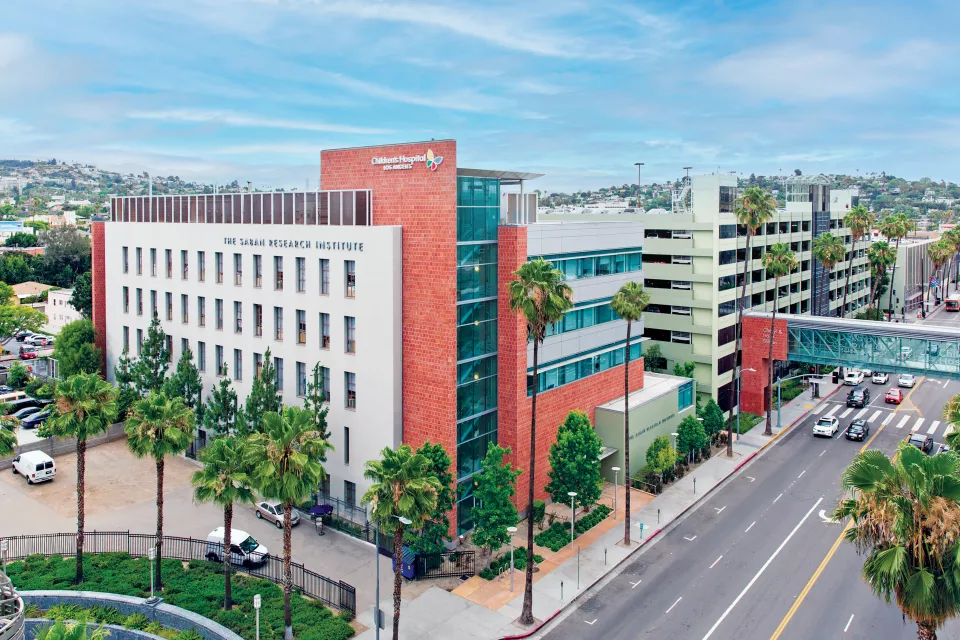Our Mission
The Brain Imaging Lab at Children’s Hospital Los Angeles aims to identify the brain bases of childhood psychiatric disorders and to map the complex pathways between the genetic and environmental influences that can trigger the onset of disease or adversely alter its course.
The Lab is a nexus for multi-disciplinary studies that investigate the most common neuropsychiatric disorders in children and young adults. Symptoms of these disorders are often debilitating, endangering both environmental and behavioral development, and the repercussions of these disorders can disrupt or devastate the lives of the individual, the family, and even the community.
The Brain Imaging Lab is part of the Institute for the Developing Mind and the Division of Research on Children, Youth and Families in the Department of Pediatrics at CHLA. The laboratory is directed by Bradley S. Peterson, MD.
Areas of Research
- Acute Lymphoblastic Leukemia (ALL)
- Anxiety Disorders
- Attention Deficit-Hyperactivity Disorder (ADHD)
- Autism
- Bipolar Disorder
- Cognitive & Learning Disabilities
- Depression
- Drug Abuse and Prenatal Drug Exposure
- Exposure to Environmental Toxins
- Nonverbal Learning Disabilities (NVLD)
- Normal development
- Premature Birth
- Schizophrenia
- Systemic Lupus Erythematosus (SLE)
- Transgender and Gender Non-Conforming
- Traumatic Brain Injury (TBI)
- Tourette’s Syndrome (TS)
- Trauma
- Violent and Antisocial Behavior
Participation
We are currently conducting many research studies to further our understanding of normal brain development and the neural basis of basic psychiatric disorders that arise during childhood.
Before participating in a research study, individuals must undergo a screening process that takes place over the phone. After completion of the screening, individuals who meet our study criteria are invited to the lab to participate in a specific study. Our studies involve three components. The first involves clinical interviews which include questions about family, education, and medical history. Participants are expected to answer the questions and in the case of a child, parents are asked the questions. The second is the administration of neuropsychological tests including memory and learning games which require paper and pen or simple computer function. These puzzles help us learn about how a participant thinks, concentrates and remembers things as well as what participants like to do when they play. The third most important component of our studies is the MRI scan. The scan involves remaining still for a period of time while performing simple tasks in the MRI Scanner. The MRI scanners use magnetic waves and radio waves to take pictures of the human brain. Sometimes these pictures can show what parts of the brain are working when the participant is performing a tasks. Our hope is the results provided by the scanner will show a connection between activities in certain areas of the brain with the performance of specific behavioral activities.
Participants don’t pay for any of these tests performed as part of a study. In fact, when you have finished, you will be given compensation for your participation. All names and records from the study are kept strictly confidential.
Technology
The Brain Imaging Lab uses different MRI modalities to capture pictorial information about a particular dimension of either the structure or the functioning of the human brain. Taken together, the information from these modalities can provide a comprehensive picture of the brain of a study participant. In addition to research on neuropsychiatric disorders, much of our work focuses on finding ways to increase the accuracy of individual modalities. We are also developing ways to combine information from the various modalities to reveal new and important details about how the brain works, both in health and in illness. This allows us to associate the genesis and behavioral symptoms of psychiatric disorders with specific regions of the brain and armed with this knowledge, clinicians can develop customized patient treatments with an efficacy previously unknown.



